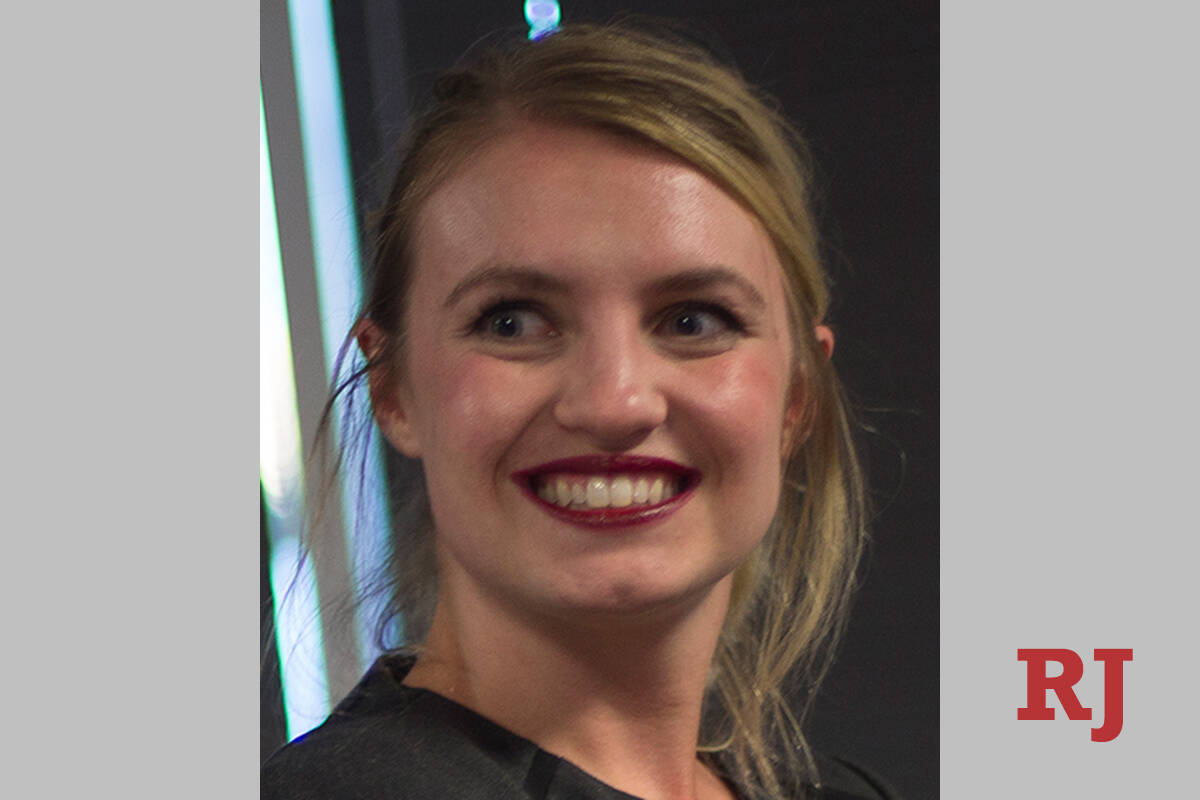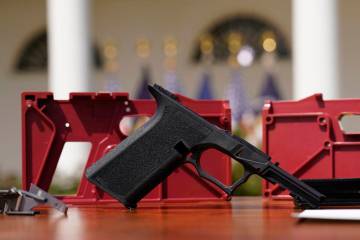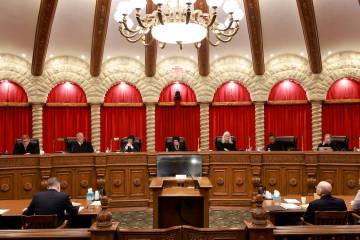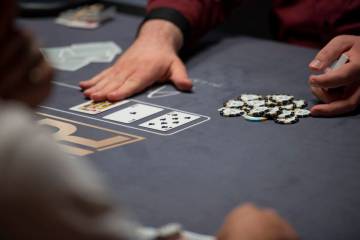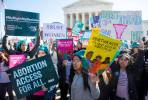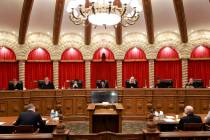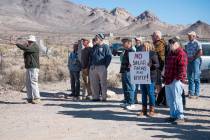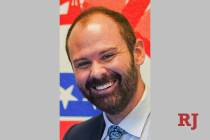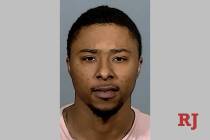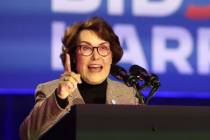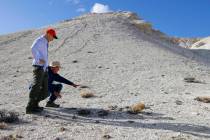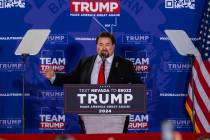Nevada high court weighs arguments on separation of powers
Nevada Supreme Court justices heard arguments Thursday on whether prosecutors should be allowed to serve in the state Legislature.
Two Clark County deputy district attorneys — Nicole Cannizzaro and Melanie Scheible — also serve in the Nevada Senate.
A lower court judge’s decisions last year to throw out a pair of DUI convictions prosecuted by Scheible raised anew an oft-disputed issue of separation of powers in Nevada government.
In an hourlong videoconference hearing with justices on the bench and attorneys arguing virtually from offices, Kevin Powers, chief litigation counsel for the Legislative Counsel Bureau, likened deputy prosecutors to staff attorneys who assist judges.
“A deputy district attorney never exercises a function of any branch of government when involved in the prosecution because they are not the district attorney; they assist the district attorney,” he argued.
But justices questioned that comparison.
“The idea that these people are mere employees is quite frankly disingenuous,” Justice Douglas Herndon said. “Elected district attorneys, particularly in Clark County or a large jurisdiction, don’t go to court, they don’t prosecute cases, they don’t argue the law, they don’t argue sentencing issues before judges. The employees, the deputy district attorneys, do that. How can there not be a conflict with them then seeking to enact laws?”
Powers argued that “the power to prosecute” is up to the elected district attorney, who alone exercises “sovereign functions” of the office.
Deborah Westbrook, a Clark County deputy public defender, who also argued on behalf of the Special Public Defender’s office and Nevada Attorneys for Criminal Justice, said that the state’s constitution barred Scheible from prosecuting the DUI cases.
“We are not challenging Sen. Scheible’s employment or her ability to work for the Clark County district attorney’s office in some capacity,” she said. “We are challenging specific actions that she took during her four-year state Senate term, and the nature of those actions should be the court’s focus.”
The high court has given no indication when a decision in the case would be made.
But Chief Justice James Hardesty suggested that an appeal of an overturned conviction in a drunk driving case may not have been the proper legal means to an end.
Hardesty pointed out that Scheible was not even a party in the action before the high court.
“There’s been no development of what service she provides, what function she provides, whether those functions are in any way in conflict with her service as a legislator,” Hardesty said.
He added: “I understand the need to have this issue addressed because other judges might decide to go down this road as well.”
Chief Deputy District Attorney Alex Chen argued that the state’s criminal justice system would benefit from an answer, one way or another.
“The ruling could influence hundreds if not thousands of cases that have been prosecuted and that may be prosecuted in the future simply because of the individual who happens to be prosecuting the case,” Chen argued. “And this level of ambiguity does not benefit any of the parties involved.”
Chen said a decision from the high court would essentially “make sure that our convictions are lawful and we can stand firm behind the things that we’re doing.”
Defense attorney Craig Mueller, who initially raised the issue when he appealed the DUI convictions, agreed that the issue needed to be resolved.
“I had to turn around and look at those citizens and tell them with a straight face, ‘Yeah the fact that the prosecutor votes on the judge’s salary had nothing to do with you getting convicted,’ ” he said. “There’s a reason why we have separation of power, and that’s exactly why we have it.”
The Nevada Constitution clearly divides government into legislative, executive and judicial branches and states that “no persons charged with the exercise of powers properly belonging to one of these departments shall exercise any functions, appertaining to either of the others, except in the cases expressly directed or permitted in this constitution.”
Last year, a conservative think tank filed suit against lawmakers who simultaneously work as public employees, including Scheible and Cannizzaro.
This year, a lower court judge rejected a bid to disqualify the Clark County district attorney’s office from its pursuit of executing Zane Floyd for killing four people in a Las Vegas grocery store.
Federal public defenders representing Floyd want third-party prosecutors appointed in the case and have appealed to the higher court.
A bill to abolish the death penalty failed to pass the Legislature during this year’s session after Clark County District Attorney Steve Wolfson and Gov. Steve Sisolak voiced opposition.
That bill, Assembly Bill 395, passed the Assembly but never came up for a vote in the Senate, dying in the Judiciary Committee, which Scheible chaired.
“Obviously there will be consequences to whatever decision the court makes,” Chen told the high court Thursday. “We all want to know that we’re doing the right thing.”
Contact David Ferrara at dferrara@reviewjournal.com or 702-380-1039. Follow @randompoker on Twitter.



